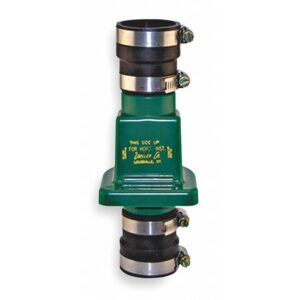Check valves are often overlooked, but they play a crucial role in maintaining the smooth operation of fluid control systems in various industries. From chemical plants to aerospace applications, these unsung heroes ensure efficiency and safety by preventing backflow and maintaining pressure.

This article explores the technical terminology associated with check valves, the different types commonly used, their wide-ranging applications, and the historical development in the industry.
Join us as we shed light on the indispensable contribution of check valves in fluid control.
Technical Terminology
Technical Terminology in check valve operation is essential for understanding the functionality and performance of these crucial components in fluid control systems.
Several terms are commonly used in relation to check valves.
- Cracking pressure refers to the minimum pressure differential needed for flow to occur.
- Reseal pressure is the pressure at which there is no visible leak rate during valve closing.
- Seating head is the pressure required to fully close the valve.
- Back pressure is the pressure higher at the outlet than at the inlet.
- Unseating head is another term for cracking pressure.
Familiarity with these technical terms allows engineers and technicians to accurately assess and troubleshoot check valve performance.
It is important to note that different types of check valves, such as ball check valves, diaphragm check valves, swing check valves, butterfly check valves, and stop-check valves, have specific technical terminology associated with their operation.
Types of Check Valves
Moving on from the previous subtopic, let’s delve into the different types of check valves that play a crucial role in fluid control systems. Check valves are essential components that allow flow in one direction while preventing backflow. There are several types of check valves commonly used in various industries.
Firstly, ball check valves utilize a ball as the closing member, which is either spring-loaded or requires reverse flow to create a seal.
Diaphragm check valves, on the other hand, have a flexing rubber diaphragm that opens when the upstream pressure is greater than the downstream pressure.
Swing check valves have a swinging disc that blocks reverse flow when closed and allows forward flow when open.
Butterfly check valves feature two hinged flaps to prevent backward flow, while stop-check valves have override control to stop flow regardless of direction or pressure.
These different types of check valves provide reliable and efficient fluid control solutions in a wide range of applications, from pumps and industrial processes to domestic heating systems and aerospace. Understanding their characteristics and selecting the appropriate check valve is crucial for ensuring the smooth operation of fluid control systems.
Applications of Check Valves
Check valves find extensive applications in various industries and systems, ensuring efficient fluid control and preventing backflow.
They are commonly used in pumps, such as piston-driven and diaphragm pumps, where they help maintain the direction of flow and prevent reverse flow when the pump is not in operation.
In the water supply systems of water slides, check valves prevent the flow of water when the facility is closed.
In industrial processes, including chemical and power plants, check valves are essential for maintaining proper flow and preventing damage to equipment.
The nuclear industry relies on check valves for systems like feed water control and monitoring.
In aerospace and aircraft, check valves are crucial for propellant control and hydraulic systems.
History and Companies
The development and evolution of check valves can be traced back to significant contributions made by inventors and companies in the past.
In 1907, Frank P. Cotter developed a simple self-sealing check valve that could be connected in pipe connections without special fittings.
Nikola Tesla invented the Tesla valve in 1916, a one-way valve for fluids, which was patented in 1920.
Today, several companies specialize in check valves for various industries.
ValveMan LLC is a company that offers a wide range of valves for different applications.
Autotrol provides flow check valves designed for reliable performance.
Valcor Nuclear offers excess flow check valves specifically for nuclear applications, while Valcor Aerospace Division specializes in aerospace check valves for hydraulic systems.
These companies continue to contribute to the advancement and innovation of check valve technology.
